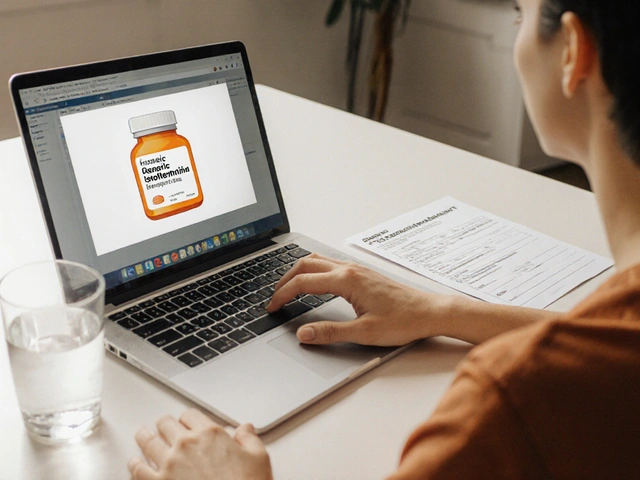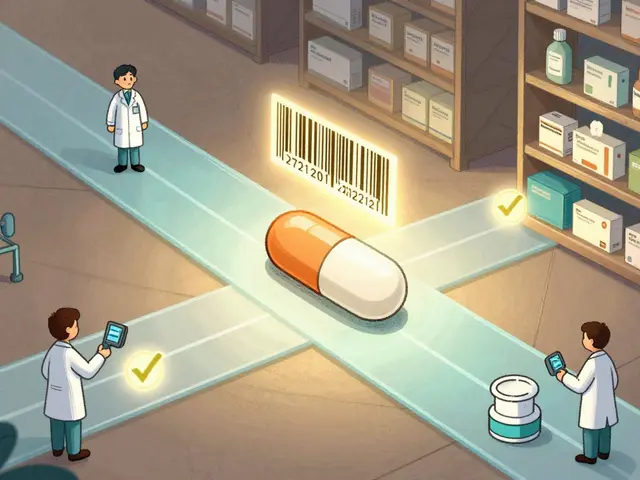If you've been told you're prediabetic, it's like a big flashing warning sign from your body. But don't hit the panic button just yet. Many people find themselves in this spot, where blood sugar levels hover above normal but aren’t quite in the diabetic range. This is where metformin, a drug that's been around the block a few times, comes into play.
Metformin is often the go-to for managing type 2 diabetes, but researchers have been digging into its potential benefits for folks with prediabetes. Why? Well, preventing diabetes before it starts is a heck of a lot easier than managing it later.
Let's talk nitty-gritty: studies show that metformin may help slow down the progression to full-blown diabetes. But, it’s not a magic pill. Your lifestyle still plays a massive role. Eating right and staying active are key players in this battle. So, thinking metformin will do all the legwork while you kick back with a bag of chips might be wishful thinking.
- Understanding Prediabetes
- What is Metformin?
- The Science Behind Metformin for Prediabetes
- Effectiveness of Metformin in Diabetes Prevention
- Lifestyle Changes to Accompany Metformin Use
- Consulting Healthcare Professionals
Understanding Prediabetes
So, what's the deal with prediabetes? It's that awkward in-between phase where your blood sugar levels start to creep up, but they're not high enough for a full-blown type 2 diabetes diagnosis. Think of it as a wake-up call from your body, nudging you to make some changes before things get serious.
More than 1 in 3 adults in the U.S. have prediabetes, but the scary part? Most of them don't even know it. The tricky part is, prediabetes often sneaks in without kicking up any symptoms, making routine screening super important, especially if you have risk factors like obesity or a family history of diabetes.
Here's the crux of it: prediabetes is all about how your body handles insulin, the hormone that helps control blood sugar. When your body doesn't use insulin properly or produce enough, sugar builds up in your bloodstream.
Wondering what those risk factors might look like? Here's a quick rundown:
- Being overweight
- Age 45 or older
- Family history of diabetes
- Low physical activity levels
- High blood pressure or abnormal cholesterol levels
Catch it in time, and making small lifestyle tweaks can get your blood sugar back on track, or at the very least, stave off the onset of diabetes. And that's where medications like metformin may lend a helping hand.
What is Metformin?
So, what's the deal with metformin? It's one of the most prescribed medications for managing blood sugar levels, especially in people with type 2 diabetes. Basically, it helps your body handle insulin better, which is crucial for keeping your blood sugar in check.
In technical jargon, metformin is classified as a biguanide. But let's keep it simple. This drug works primarily in the liver, and what it does is cut down the amount of glucose your liver pumps into the blood. That's a big deal because too much glucose floating around is a recipe for disaster.
Here's a fun fact: Metformin's roots trace back to a plant called French lilac or 'Galega officinalis', which was used in traditional remedies. Fast forward to today, and it's a staple in diabetes treatment plans around the globe.
Now, it's not just about managing blood sugar. Some studies suggest metformin might even help with weight loss and improve cholesterol levels in certain individuals. Keep in mind though, everyone reacts differently, so these benefits might not be universal.
It's generally well-tolerated and safe, but like any drug, it can have side effects. Some people experience digestive issues like upset stomachs or diarrhea when starting out.
| Metformin Facts | Details |
|---|---|
| First Approved | 1957 in France |
| Common Side Effects | Digestive issues |
| Drug Class | Biguanide |
Just like with any medication, it's crucial to follow your doctor's advice on dosage and frequency. And remember, metformin works best when coupled with healthy lifestyle choices. So, it's no get-out-of-jail-free card, but it can be an essential piece of the puzzle.
The Science Behind Metformin for Prediabetes
Alright, let's get into the nuts and bolts of how metformin actually works when it comes to prediabetes. Simply put, this drug helps lower blood sugar levels. It primarily does this by decreasing the amount of glucose your liver pumps out.
Another cool thing about metformin is that it helps improve the body’s sensitivity to insulin. Think of insulin as the key that unlocks your cells so they can grab and use glucose for energy. So, by making the body more responsive to insulin, metformin makes it easier to process the sugar in your bloodstream.
Want some hard data? One major study found that using metformin reduced the risk of developing type 2 diabetes by about 31% over three years in people with prediabetes. That's a big deal!
However, popping a pill doesn’t sidestep the need for healthy habits. Lifestyle changes like losing a bit of weight, even just 5-7% of your body weight, and staying active are super effective when combined with metformin. They actually showed even better results than the drug alone in the same study!
Here’s how it looks:
| Intervention | Diabetes Risk Reduction (%) |
|---|---|
| Lifestyle Changes | 58% |
| Metformin | 31% |
| Placebo | 0% |
This table says it all—taking action now can make a real difference in your health journey. And don't forget, any approach should include catching up with your healthcare provider for personalized advice.

Effectiveness of Metformin in Diabetes Prevention
Okay, let's get into it. So, you might be wondering if taking metformin can actually keep type 2 diabetes at bay. The short answer? It depends, but there's good news!
A landmark study known as the Diabetes Prevention Program (DPP) threw the spotlight on metformin, showing it can reduce the risk of developing type 2 diabetes by about 31% in people with prediabetes. The effects were even more pronounced in younger, heavier folks—particularly those under 60 or with a Body Mass Index (BMI) over 35.
But here’s an interesting twist. Lifestyle changes, like eating better and moving more, proved even more effective than metformin, cutting diabetes progression by 58% in the study. So, while metformin is a helpful tool, pairing it with lifestyle changes makes for a powerhouse combo.
The real kicker is that metformin is considered safe and often well-tolerated, with some common side effects like stomach upset that usually fade over time. It's not a cure-all, but it's a solid step toward prevention that works best with other healthy habits.
So, if your doctor suggests metformin for your prediabetes, it's worth considering. Just remember, this isn't an 'either/or' situation—it's a team effort between you, your med, and your lifestyle.
Lifestyle Changes to Accompany Metformin Use
Starting on metformin is a step in the right direction if you're looking to delay or prevent type 2 diabetes. But medication alone often isn't enough. Pairing it with smart lifestyle changes can significantly boost your success rate.
First up, let's chat about diet. Eating well doesn't mean you have to exclusively munch on lettuce. Aim for a balanced diet that's rich in whole grains, lean proteins, and plenty of fruits and veggies. These foods help regulate blood sugar and support the work metformin is doing. An easy rule of thumb? Fill half your plate with veggies, a quarter with protein, and the rest with carbs.
Exercise is another big hitter in your diabetes-prevention playbook. It doesn’t have to mean hitting the gym for hours. Even a simple 30-minute brisk walk most days can make a world of difference. Consistent physical activity works alongside metformin to keep your blood sugar levels stable.
Here's a snapshot of how changes stack up to help:
- Healthy Eating: Choose whole foods over processed options.
- Regular Exercise: Aim for at least 150 minutes of moderate exercise a week.
- Maintain a Healthy Weight: Even a 5-10% weight loss can improve insulin sensitivity.
- Manage Stress: Practice relaxation techniques like yoga or meditation.
- Avoid Smoking: Smoking can worsen insulin resistance and increase risk.
For those who love numbers, here's a quick look at how lifestyle changes affect diabetes risk:
| Intervention | Risk Reduction |
|---|---|
| Metformin alone | 31% |
| Lifestyle changes + Metformin | 58% |
Pretty compelling, right? Combining lifestyle changes with metformin could more than double your chances of staving off full-blown diabetes. When in doubt, reach out to a healthcare professional to tailor a plan to your needs.
Consulting Healthcare Professionals
If you're thinking about hopping on the metformin train for prediabetes, your first stop should definitely be your doctor’s office. This isn’t a decision to make after a quick online search. Medical experts can give you the full scoop on whether this medication is right for your unique health situation.
Metformin, like any drug, carries its own set of things to weigh up. A healthcare professional will assess your health history, current medications, and lifestyle choices to determine if this route is a safe one for you. They know the ins and outs and can help you avoid any potential bumps in the road.
According to Dr. Jane Smith, a leading endocrinologist, "
It's crucial to have a comprehensive discussion with your doctor about type 2 diabetes prevention options. Metformin might be beneficial, but it should be part of a larger strategy that includes lifestyle changes."
Your doctor may also tell you about potential side effects like gastrointestinal issues or the need for regular blood glucose monitoring. All these details matter and are part of ensuring you're on the right path.
Here's a bit of advice on how you can make the most of your visit:
- Come prepared with your recent blood sugar readings and a list of any medications you're already taking.
- Jot down all your questions and concerns beforehand; it’s easy to forget in the moment.
- Be open about your lifestyle. Honesty will help guide the best treatment plan for you.
Finally, routine check-ups are crucial. Once you're on metformin, regular visits help monitor how well it's working and whether any adjustments are needed. Remember, this should feel like a team effort between you and your healthcare professional.







Charlie Crabtree
March 28, 2025 AT 11:42 AMHey folks! 🙌 If you're staring at that pre‑diabetes label, remember you’ve got tools in your kit. Metformin can be one of them, but the real magic happens when you pair it with good food and movement. 🌱💪 Keep the momentum, and you’ll stay ahead of the curve! 🚀
Fatima Sami
March 29, 2025 AT 01:35 AMI noticed a couple of minor errors in the original post: “pre‑diabetes” should be hyphenated, and “metformin” is always lowercase unless beginning a sentence. Otherwise, the information presented is accurate and well‑structured.
Arjun Santhosh
March 29, 2025 AT 15:28 PMyeah i think metformin is good but u also need to watch ur diet lol its not just a pill to fix everything srsly. try to cut down on sugarr and walk more, thats the real hack.
Stephanie Jones
March 30, 2025 AT 20:15 PMIn the grand tapestry of human health, the whisper of a lab value becomes a chorus urging us toward transformation. Prediabetes is not merely a statistic; it is a moment of existential choice, a fork in the road where complacency and action diverge.
Nathan Hamer
March 31, 2025 AT 10:08 AMMetformin, that humble biguanide, has carved its niche in the annals of diabetes care.
Yet, when we gaze upon the data, a richer narrative unfolds.
The Diabetes Prevention Program, a monumental trial, revealed a 31% risk reduction for those on metformin.
This number, while respectable, is eclipsed by the 58% reduction achieved through lifestyle overhaul.
Think of it as two dancers; one moves in rhythm, the other leads the choreography.
Metformin provides the steady beat, but without the choreography of diet and exercise, the performance is half‑baked.
Moreover, the drug’s mechanism-dampening hepatic gluconeogenesis-offers a physiological buffer against hyperglycemia.
This buffer, however, can be eroded by a sedentary lifestyle that fuels insulin resistance.
Patients often report gastrointestinal discomfort at initiation, a reminder that no pharmacologic ally is without cost.
Yet, most side effects subside within weeks, especially when the pill is taken with meals.
The crux lies in patient education: empower individuals to view metformin as a catalyst, not a crutch.
Pairing it with a modest 150‑minute weekly exercise regimen can amplify its efficacy beyond the numbers reported.
Nutrition, too, plays a starring role-think whole grains, lean proteins, and fiber‑rich vegetables.
In practice, clinicians who adopt a holistic framework see adherence rates climb dramatically.
Ultimately, the battle against diabetes is won on two fronts: pharmacology and lifestyle.
Embrace both, and you wield a double‑edged sword against the inevitable tide of disease. 🙏✨
Tom Smith
April 1, 2025 AT 13:55 PMSo you think metformin is the silver bullet? Ah, the classic “just a pill” mindset. Let’s sprinkle a little sarcasm: without diet and exercise, it’s like bringing a spoon to a sword fight.
Kyah Chan
April 2, 2025 AT 03:48 AMWhile the article presents a generally balanced view, it neglects to address the long‑term renal implications of chronic metformin use. Moreover, the cost‑benefit analysis is insufficiently substantiated, rendering the conclusions somewhat tenuous.
Ira Andani Agustianingrum
April 3, 2025 AT 07:35 AMHey there! 🌟 Remember, consistency beats intensity. A steady walk after dinner, swapping soda for water, and adding a handful of nuts can make a world of difference. Small habits stack up, and before you know it, you’ve built a healthier foundation that amplifies metformin’s benefits. Keep it up-you’ve got this!
James Higdon
April 3, 2025 AT 21:28 PMOne must recognize the moral imperative to prioritize prevention over treatment. Accepting medication without sincere lifestyle change undermines personal responsibility and societal health ethics.
Wanda Smith
April 5, 2025 AT 01:15 AMThe powers that be don’t want you to know that pharmaceutical companies are staging a covert campaign to make us dependent on pills. It’s all orchestrated, and metformin is just the tip of the iceberg.
Bridget Jonesberg
April 5, 2025 AT 15:08 PMOne cannot merely skim the surface of such a multifaceted subject without trudging through its intricate layers. To posit that metformin alone suffices for prediabetes management would be a gross oversimplification, bordering on intellectual negligence. Indeed, the confluence of pharmacological intervention and behavioral modification constitutes a synergistic paradigm, wherein each element potentiates the other. It would be remiss to neglect the psychosocial determinants of health-stress, socioeconomic status, and cultural dietary practices-all of which invariably modulate therapeutic outcomes. Hence, any discourse that eschews these variables in favor of a reductionist viewpoint does a disservice to the reader, the clinician, and, most pertinently, the patient.
Marvin Powers
April 6, 2025 AT 18:55 PMAlright, folks, let’s get real for a sec. Metformin is cool, but it’s not a magic wand. If you think you can binge on chips while a pill does all the heavy lifting, you’re living in a fantasy. The real trick? Swap that soda for sparkling water, pothole‑walk those stairs, and actually read the nutrition label. Oh, and yes-your culture’s food can be healthy; just tweak the portions, not the soul. So, grab that pill, but don’t forget to bring your own hustle. 😂💪
Jaime Torres
April 7, 2025 AT 08:48 AMmetformin works. lifestyle matters too.
Wayne Adler
April 8, 2025 AT 12:35 PMListen, I get that metformin can help, but if you keep eating junk, you’re just feeding the problem. Stop making excuses, get serious about your diet, and the drug will actually do something. No more whining about side effects when you’re the one sabotaging yourself. Take control, or stay stuck-your call.
Shane Hall
April 9, 2025 AT 02:28 AM🚨 ALERT! 🚨 The hero’s journey of blood sugar control: Act I – you discover prediabetes. Act II – you meet metformin, a trusty sidekick. Act III – you brave the dragons of cravings and the labyrinth of workouts. The climax? Victory over the looming specter of type 2 diabetes! 🎉 Remember, every epic needs both sword and shield. Your sword is the medicine; your shield is the lifestyle choices you forge every day.
Christopher Montenegro
April 10, 2025 AT 06:15 AMFrom a pharmacoeconomic perspective, the incremental cost‑effectiveness ratio (ICER) of metformin adjunct therapy remains favorable only when juxtaposed with rigorous lifestyle modification protocols. Nevertheless, the discourse fails to integrate real‑world adherence metrics, thereby inflating projected outcomes.
Kyle Olsen
April 10, 2025 AT 20:08 PMObviously, anyone who reads this thinks they’re a medical guru. The truth is simple: metformin can shave a few percent off your risk, but without disciplined nutrition and exercise, you’re just throwing money away. Stop pretending you’re smarter than the data.
RaeLyn Boothe
April 11, 2025 AT 23:55 PMEveryone needs to understand the downsides of metformin.